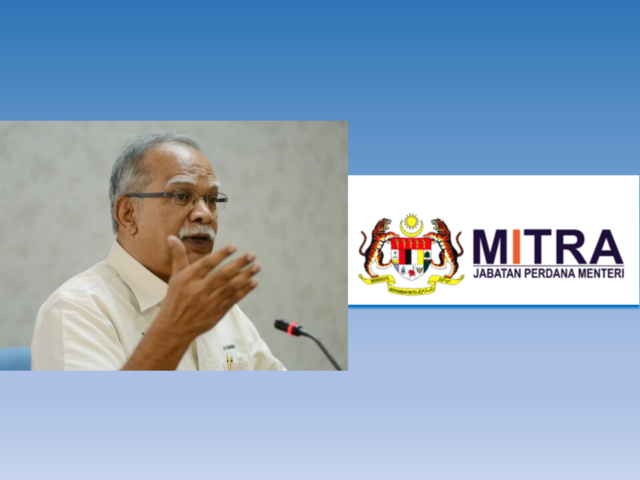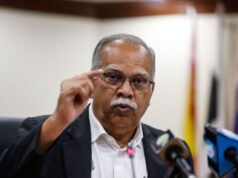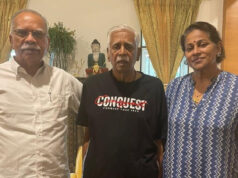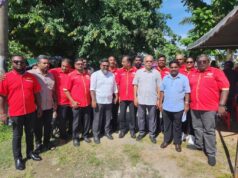 COMMENT BY YB PROF DR P.RAMASAMY, DEPUTY CHIEF MINISTER II, PENANG
COMMENT BY YB PROF DR P.RAMASAMY, DEPUTY CHIEF MINISTER II, PENANG
Mitra should empower Indians through science education
The Malaysian Indian Transformation Unit (Mitra) has announced that RM39 million would be allocated to assist the B40 Indians this year.
This essentially means financially assisting undergraduate students, assisting Tamil kindergartens in Tamil schools and assisting kidney patients by subsidising the costs for dialysis.
I am glad that Mitra has taken the role of focusing on target groups rather than providing funds for the NGOs.
It is not that some well-deserving NGOs should not be assisted, but the bulk of RM100 million budget should go the poor and underprivileged target groups in the B40 category.
It cannot be forgotten that Mitra went astray earlier by giving funds to some dubious NGOs in the name of assisting the poor category of Indians.
The end result was the funds were misappropriated by certain individuals for their own greedy and selfish ends. Some of them have been charged in the court for the misappropriation of funds.
I hope Mitra learns from the past pitfalls.
Financial disbursements to directly to target groups requires a lot of work and preparation.
Giving to the NGOs is the easiest form of disbursements. It might be simple and easy way to allocate funds to the hastily selected NGOs, but the pitfalls of such an administrative exercise is too well known. The end result will mean only connected individuals and organisations will benefit in the name of assisting the Indian community.
As I have remarked in my other articles on Mitra, the budget of RM100 million is a drop in the ocean for the Indian community.
However, the first task of Mitra is to ensure that the RM100 million is well spent in terms of benefitting the Indian poor. Only then it can convince the government and the Indian public that the Indian community needs more than the meager RM100 million.
It serves no purpose to ask for additional funds, at least for the time being, if the RM100 million allocated is not judiciously spent. It is alright to say that Mitra is going to assist the above mentioned three categories of recipients.
But the public needs details as the devil is in them.
Hopefully, Mitra will provide the additional details of the potential recipients, the standard operating procedures (SOPs) and others regarding the disbursements of funds.
Yes, poor Indian students in tertiary education need financial assistance. The one off assistance might help them.
Hopefully, Mitra does not become too engrossed in assisting students in tertiary institutions to the neglect of students pursuing certificate and diploma courses especially in talent acquisition.
Mitra should realise that given the talent crunch in the country, it is best to equip students with qualifications in computer science, technology and information technology.
The duration is short but nonetheless prepares students for the right and challenging jobs in the private sector. Gone are the days of the preoccupation with merely tertiary credentials.
Pre-school or kindergarten education is essential for the survival of Tamil schools in the country especially those with low enrollment. While kindergartens registered with the education ministry is growing, private kindergartens both with the Tamil schools premises and outside are providing an excellent service in supplying students to Tamil schools.
Without the function of kindergartens, many Tamil schools might face decline in student population. In this regard, Mitra should not become overly fixated with the so-called government registered kindergartens.
It should assists hundreds and thousands of kindergartens in the country that mostly operate outside the Tamil school system.
Kindergartens provided yearly financial allocations in Penang
In Penang, the state government has given importance to these private kindergartens by providing yearly financial allocations. Mitra must exercise care and caution in the disbursement of financial allocations to the identity target groups.
It must be move away from providing the bulk of financial assistance to NGOs that have been ostensibly set up to assist the poor segment of the Indian community.
However, Mitra’s unpleasant experience of the past with the NGOs must be avoided.
Rather than blindly supporting the Indian poor, financial need of the community must be predicated on the need to empower them through education with emphasis on science, technology, engineering and mathematics.










